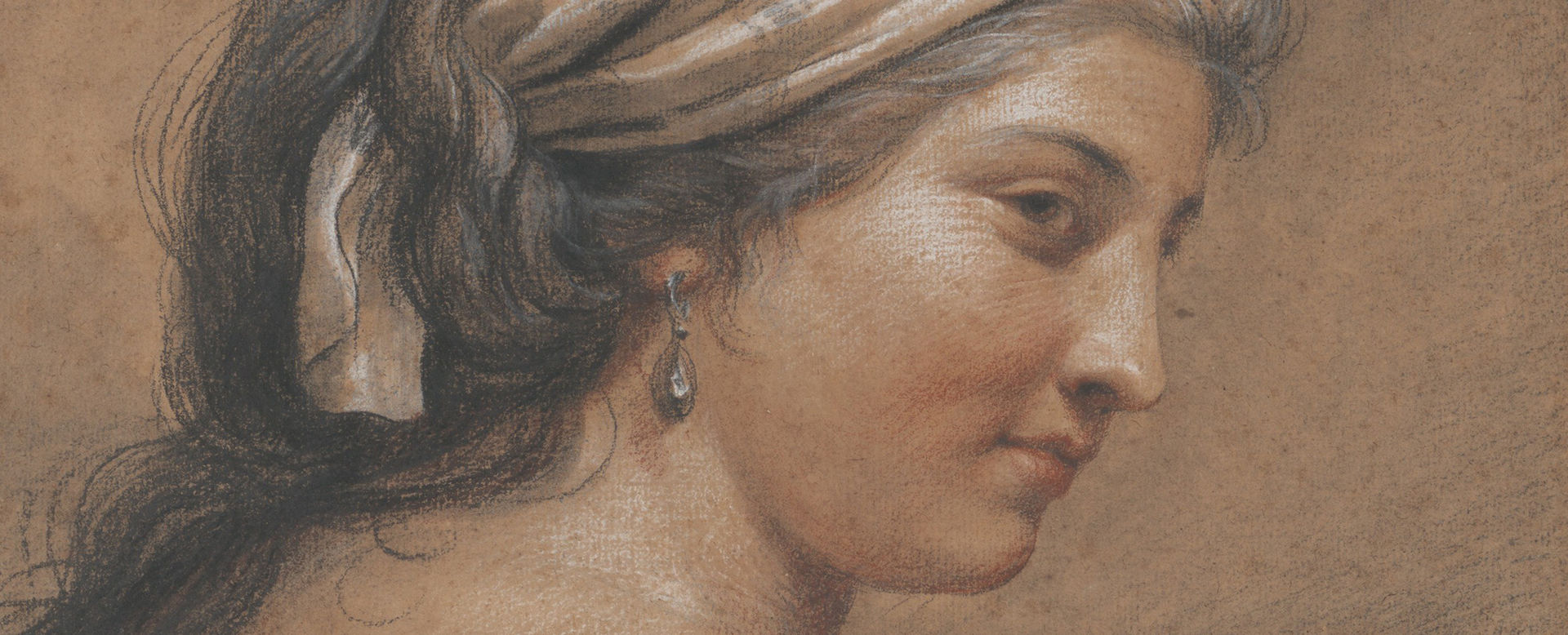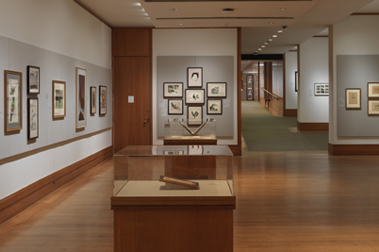Portrait of Alexandre Dumas
Etienne Carjat French
Subject Alexandre-Davy-de-la-Pailleterie Dumas French
Not on view
Etienne Carjat’s large-scale caricatural portrait presents the celebrated author Alexandre Dumas père as a literary heavyweight, emphasizing both his late-in-life physical heft and his plentiful publications. As a prominent Black figure in Parisian society, Dumas was often the subject of racist caricatures. Here, although Carjat exaggerated the proportions of Dumas’s lips and frizzy hair, the artist focused more on satirizing his professional persona and accomplishments. His attributes include a large quill tucked under one arm and two inkwells that hang from his waistcoat. Falling from his overstuffed pockets are references to his best-known novels, The Three Musketeers and The Count of Monte Cristo, as well as Georges, La Reine Margot, and his various travelogues. The titles of two weekly journals he founded largely for self-promotion, Le Mousquetaire (1853–57) and Le Monte-Cristo (1857–62), are displayed like flags on newspaper sticks. His prolificacy is suggested by the many pages titled "mémoires" that tumble down on the right. One of his collaborators in Le Mousquetaire, Joseph Méry, penned the epigram below the image, which translates as: "A moral and physical giant, / Prose or verse, everything pleases him…" This is one of two known caricatures Carjat made of Dumas; he later made a photographic portrait (1992.5148.25).
This image cannot be enlarged, viewed at full screen, or downloaded.



